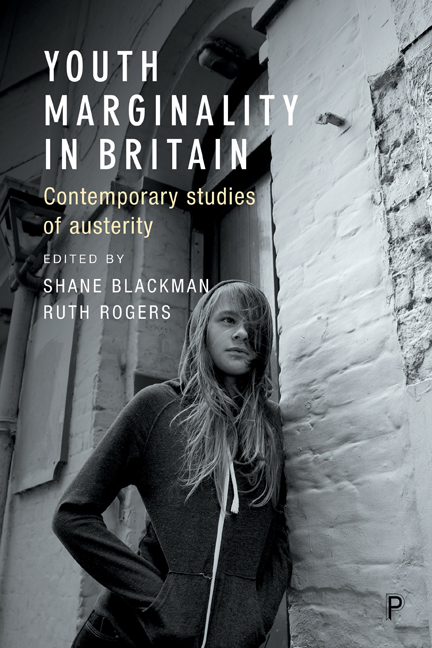seventeen - Conclusions: advanced youth marginality post-Brexit
Published online by Cambridge University Press: 05 April 2022
Summary
Contemporary issues affecting the UK
In this final chapter, we consider some of the contemporary issues affecting young adults in the UK as a result of economic insecurity post-Brexit. This is followed by three sections that address marginality in terms of:
• austerity measures targeting young people;
• the critical intersections of social class, gender and ethnic identities within political, cultural and popular discourses as they impinge upon the question of young people and social marginalisation;
• degrees of resistance and autonomy among young people, where agency appears highly vulnerable and young people struggle to maintain an independent voice.
Economic insecurity post-Brexit
The UK is entering a new period of economic instability since the referendum decision to leave the European Union in June 2016. While still in the early stages, we know that the referendum result had a significant impact on the fall in the value of the pound and an increase in the cost of imported products, including food. Given that the UK only produces 60% of the food it consumes, this is already having a direct impact on the supermarket shop (The Guardian, 2016a).
This economic instability, together with rising inflation and the increased cost of goods and foods needs to be considered within a context where the use of food banks was already at a record high and over a quarter of all young people living in the UK were already living in poverty (Garthwaite, 2016). These include families suffering from underemployment as well as unemployment. In 2013-14, the proportion of young people in poverty living in a working family rose from 54% in 2009-10 to 63% (Institute for Fiscal Studies, 2015). The numbers of young people living in poverty have been steadily rising since 2004, and young people are much more likely to live in low-income households than either pensioners or working-age adults (Poverty Site, 2016). The Institute for Fiscal Studies explains this divergence as a result of the various cuts to benefits, which it claims are projected to have a ‘particularly large impact on child poverty rates in large families’ (Institute for Fiscal Studies, 2015, p38).
Austerity measures targeting young people
Advanced marginality is with us due to extensive cuts to benefit entitlement over the last five years.
- Type
- Chapter
- Information
- Youth Marginality in BritainContemporary Studies of Austerity, pp. 269 - 280Publisher: Bristol University PressPrint publication year: 2017



